Muhammad Ali Pasha was born in 1769 in Ottoman Kavala, rose from military commander to Egypt’s autonomous ruler and modernizer. Known as the “Father of Modern Egypt,” he transformed the army, economy, and education, establishing Egypt as a regional power independent from the Ottoman Empire. His reforms spurred agricultural growth, industrialization, and centralized governance, though accompanied by heavy taxation. He built the iconic Muhammad Ali Mosque and founded a dynasty that lasted until 1953. His military campaigns expanded Egypt’s influence but invited European intervention. Muhammad Ali’s legacy remains as the architect of Egypt’s modern transformation, blending ambition, cultural revival, and political complexity.

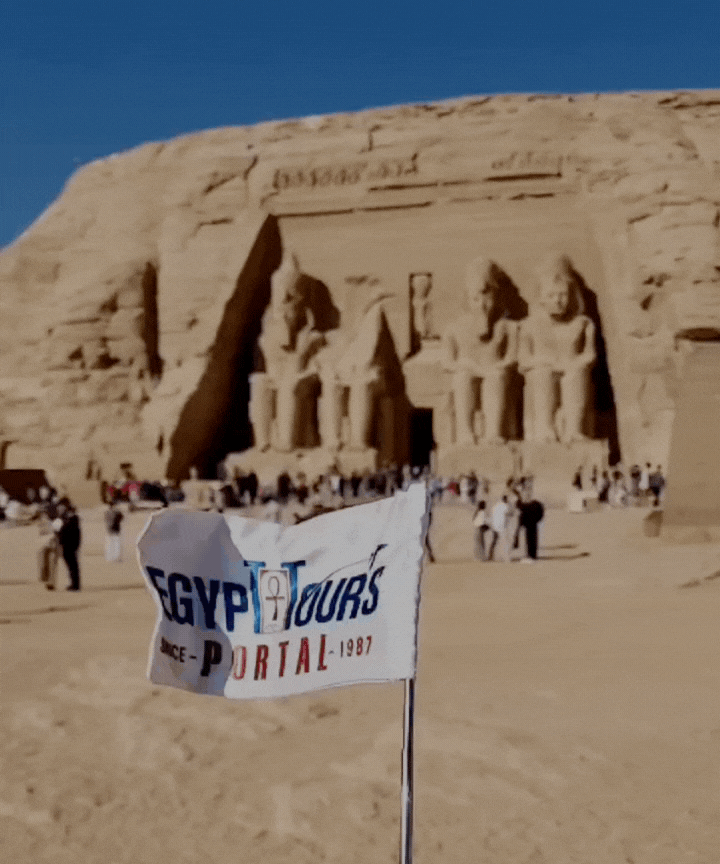
Muhammad Ali Pasha was a visionary whose ambition extended beyond personal power to creating a legacy that would outlast him. Driven by a desire to build a modern, self-sustained Egypt, he set out to transform the nation’s military, economy, and culture. One of his most enduring symbols of this ambition is the Muhammad Ali Mosque, an architectural masterpiece perched atop Cairo’s Citadel. Designed to reflect the strength and grandeur of his vision, the mosque stands as a tribute to his legacy, showcasing Egypt’s blend of Ottoman and Islamic heritage while marking a pivotal era in the country’s modern history.
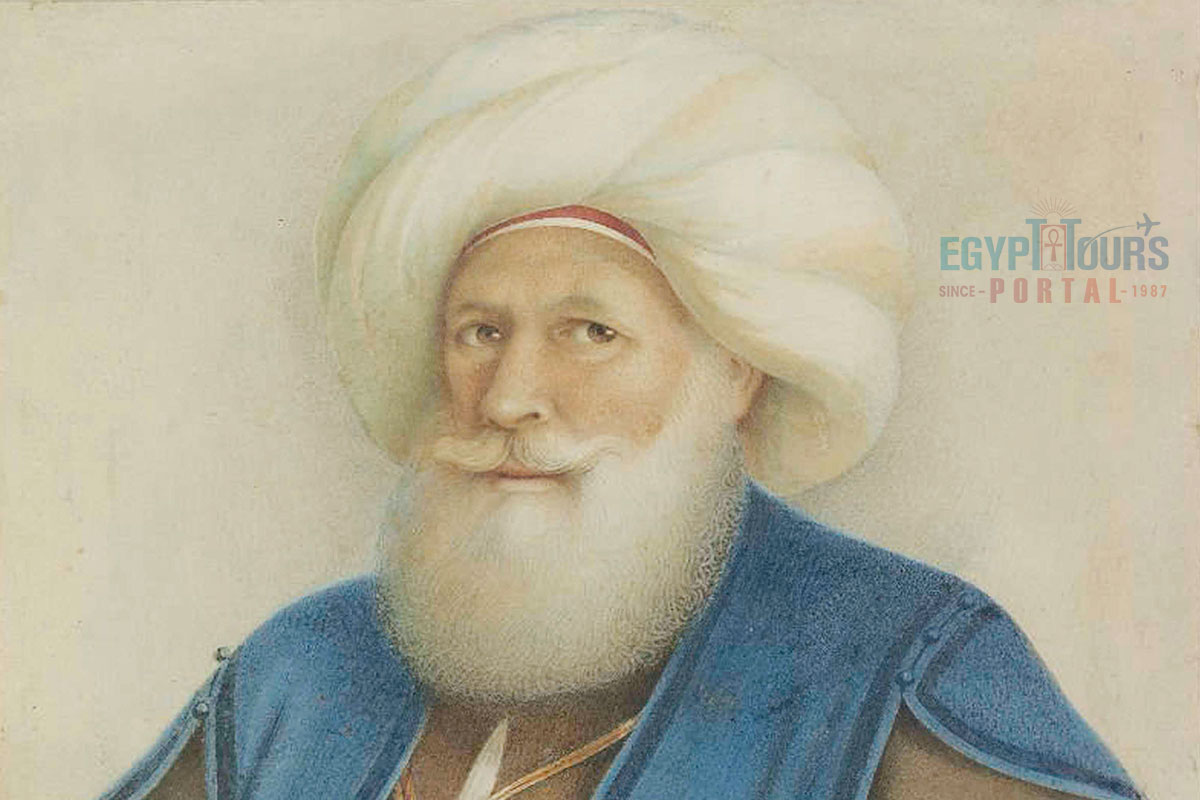
Muhammad Ali Pasha, born on 4 March 1769 in the Ottoman region of Kavala (present-day Greece) to an Albanian family, rose from humble beginnings to become one of the most influential rulers in Egypt’s history. Originally serving as a commander in the Ottoman military, he would ultimately claim the title of Wāli, or Governor, of Egypt and set himself on a path to transform the region into a modern state and a formidable power. Often credited as the “Father of Modern Egypt,” Muhammad Ali’s legacy stems from his vision and tenacity, which allowed him to forge Egypt into a centralized, progressive, and economically robust state.
Muhammad Ali's early career saw him as a commander in the Ottoman forces sent to reclaim Egypt after the French occupation under Napoleon. Once in Egypt, Muhammad Ali quickly maneuvered through complex political alliances and strategic relationships, often pitting local forces, such as the Mamluks and Ottoman officials, against one another. By 1805, the people and local leaders of Egypt rallied behind him as a stabilizing force, and he was officially named the Wāli of Egypt. This moment marked the beginning of a transformative era for the country.
Upon securing his position, Muhammad Ali embarked on sweeping reforms that reshaped Egypt’s economy, military, and social structure. Economically, he introduced new agricultural practices, including the cultivation of long-staple cotton, which would become Egypt's most valuable export. He nationalized land, creating a centralized state control over resources, and implemented policies to modernize Egypt’s trade and industry. These economic reforms laid the foundation for Egypt’s prosperity, significantly increasing the country's wealth and stability.
In the military sphere, Muhammad Ali restructured Egypt’s army and navy, drawing on European models. He built factories to manufacture weapons, introduced military training based on European standards, and developed shipyards to support a powerful navy. His reorganization of the military allowed Egypt not only to defend its borders but also to expand its influence, as he led campaigns into regions like Sudan, Arabia, and parts of the Levant, challenging Ottoman authority and establishing Egypt as a regional power.
Culturally, Muhammad Ali promoted education and modernization, recognizing that an educated society would be essential for sustaining his vision. He established schools, brought in foreign experts, and sent Egyptian students to Europe to learn various disciplines. He supported the printing press and encouraged the translation of European texts into Arabic, laying the groundwork for Egypt’s intellectual and cultural development, which would later contribute to the Arab Renaissance, or Nahda.
Under Muhammad Ali’s rule, Egypt became a model of modernization in the Middle East, attracting attention and respect on the global stage. His legacy as the architect of modern Egypt is underscored by his lasting impact on Egyptian governance, economy, and military strength, shaping the future of the nation well into the 20th century.
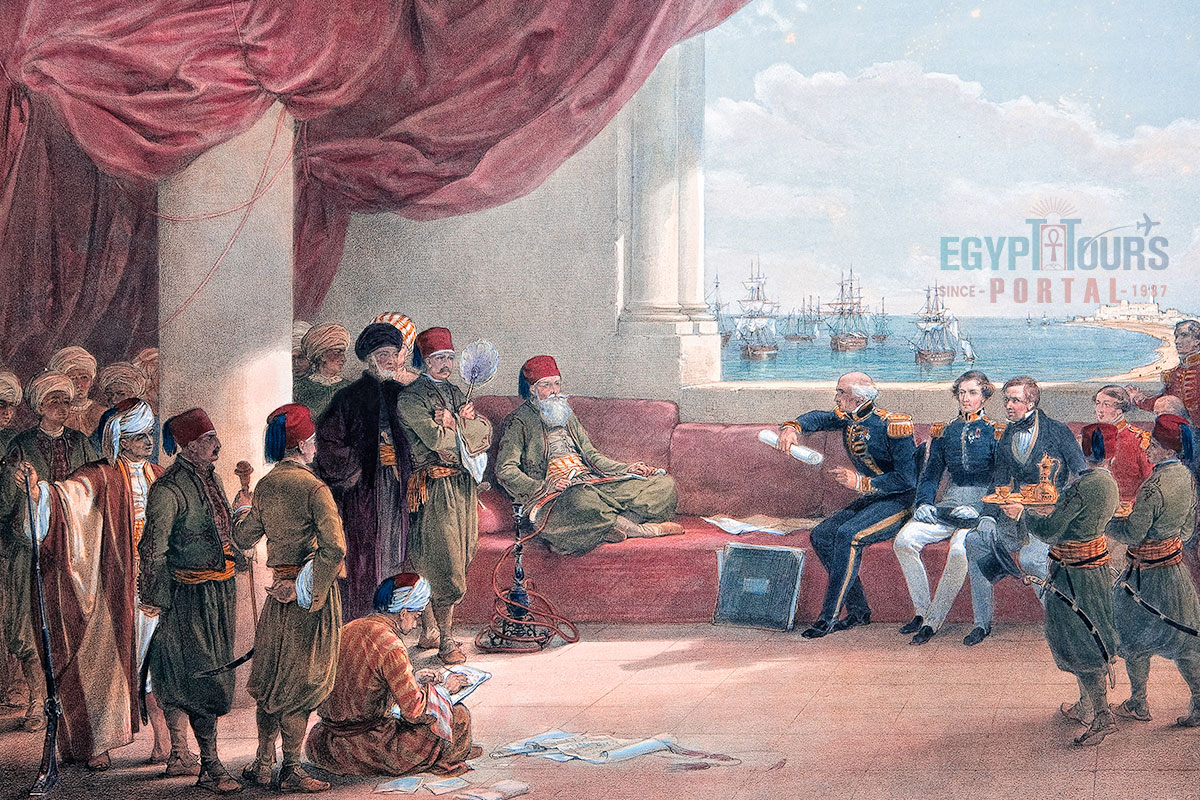
In 1798, Egypt was under the weak leadership of the Ottoman Empire but was also occupied by the French forces under the control of Napoleon Bonaparte himself who destroyed the Mamluk rulers on the battlefield but in 1801 the French forces had to withdraw which left a vacuum which gave Muhammad Ali the chance to seize the moment appointed himself the ottoman "Wali" governor of Egypt to take control of the Ottoman army to re-occupy the province but he had other plans. He used his support of the general public and the religious establishment to work on taking more control and charge of the country and to eliminate the Mamluks who controlled Egypt for more than 600 years.
On the First of March in 1811, the Mamluks gathered in the Cairo citadel, and Muhammad Ali’s troops began killing all sixty-four Mamluks, including twenty-four commanders. He then dispatched his troops through Egypt to destroy any remaining traces of the Mamluk forces. He had a dream of creating his dynasty and his own kingdom away from the decaying Ottoman Empire; that’s why he transformed Egypt into a regional power and declared himself the rightful successor. His dynasty ruled Egypt from its date of foundation in 1805 until 1953 AD, following the Egyptian Revolution.

He understood that if he wanted to detach Egypt from the Ottoman Empire and make it truly independent, then he had to have a more powerful economic and military force. He developed a strategy based on agriculture as he planted crops for the sole purpose of exportation, like rice, sugarcane, and especially cotton. All the income from agricultural production and export was used to develop public works and national projects like irrigation, canals, dams, and barrages.
He also disbanded his foreign army and created a fleet and an army of pure Egyptians who were commanded by the Turks and trained by French commanders in the art of warfare. He also started an educational revolution as he constructed Western-style schools and universities to produce doctors, engineers, veterinarians, and other specialists. He sent educational expeditions to Europeans who were trained in modern techniques to complete his bureaucracy.
He launched an industrial age in Egypt as he built factories to produce sugar, glass, and textiles that competed with the European product, and built ships, weapons for the new army, and navy. There was also a dark side to his master plan as he added excessive taxation to pay for all his expensive projects, which led him to lose a great deal of his public support.
His over-control of agriculture expanded his monopolization of world trade, which led to a bad relationship and exchange with Britain, which saw Egypt as a threat to their economic influence. He also tried to expand his empire by invading Syria in 1831, but was stopped by the great forces of Britain, France, and Russia. Muhammad Ali had no choice but to sign the 1841 treaty, which commanded Muhammad Ali to be stripped of all the conquered territory except Sudan, but in return granted the hereditary governorship of Egypt for life.

Muhammad Ali Pasha, often hailed as the "Father of Modern Egypt," established a powerful dynasty that shaped Egypt and Sudan’s political and cultural landscapes for over a century. Born into an Albanian family in Kavala (modern-day Greece), he carved out an independent path for his descendants. His immediate family included notable figures like his son, Ibrahim Pasha, a skilled military commander who led Egypt’s armies in several campaigns, and his grandson, Abbas I, who inherited the throne after Muhammad Ali’s death.
The family line continued through Khedive Ismail, one of Muhammad Ali's grandsons, who is credited with significant modernization efforts, including the expansion of Cairo and the construction of the Suez Canal, which became a pivotal asset for Egypt. The dynasty eventually reached its peak with King Farouk, the last reigning monarch, whose reign ended with the Egyptian Revolution of 1952.
This revolutionary movement, led by the Free Officers, overthrew the monarchy, formally ending the rule of Muhammad Ali's descendants and establishing the Republic of Egypt. Despite the eventual dissolution of the monarchy, Muhammad Ali's dynasty had an enduring influence on Egypt’s cultural, political, and economic structures, leaving a legacy that profoundly shaped the nation’s modern history.
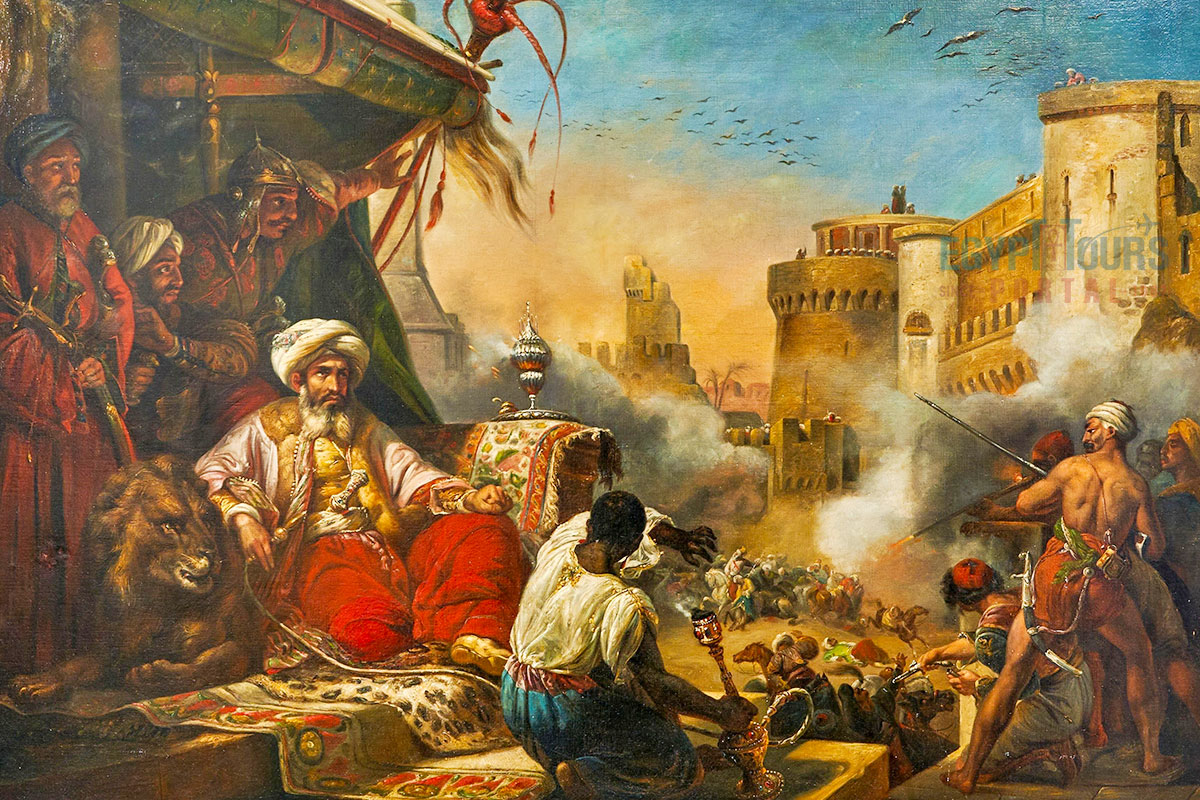
Muhammad Ali Pasha’s military campaigns were vast and ambitious, extending Egypt’s influence throughout the Middle East, North Africa, and beyond. His military acumen transformed Egypt into a formidable power, challenging the Ottoman Empire and drawing the attention of European nations. Key campaigns include:
The Wahhabi War (1811–1818): In response to a call from the Ottoman Sultan, Muhammad Ali launched a campaign against the Wahhabi forces in Arabia, who had captured the holy cities of Mecca and Medina. Under the leadership of his son, Tusun Pasha, Egyptian forces faced initial setbacks but eventually recaptured these cities, establishing Egyptian dominance over the region.
The Greek War of Independence (1821–1832): Supporting the Ottoman Empire’s efforts to suppress the Greek revolt, Muhammad Ali deployed a sizable Egyptian fleet and army under the command of his son, Ibrahim Pasha. Despite their initial successes, the campaign culminated in a significant loss for Egypt when European forces decisively defeated Muhammad Ali’s fleet at the Battle of Navarino in 1827. This loss severely impacted Egypt’s naval power but underscored Muhammad Ali’s position as a major regional player.
Syrian Campaigns (1831–1833, 1839–1840): Seeking to expand Egypt’s territory, Muhammad Ali launched invasions into Syria and parts of Anatolia, challenging Ottoman control. Under Ibrahim Pasha, the Egyptian forces successfully captured these territories, extending Egyptian influence. However, these campaigns alarmed European powers who feared Egypt’s increasing strength. Ultimately, European intervention forced Muhammad Ali to retreat from these territories, although the campaigns solidified Egypt's standing as a rising power in the region.
Through these campaigns, Muhammad Ali sought to establish Egypt as a regional superpower, independent of Ottoman control. His military ambitions brought Egypt to the forefront of Middle Eastern geopolitics, though they also attracted European interference, marking the complex balance of power that defined his rule.
The Massacre of the Mamelukes, also known as the Cairo Citadel Massacre of 1811, was one of the most defining moments of Muhammad Ali’s consolidation of power in Egypt. Recognizing the Mamluks as his primary rivals— a class that had ruled Egypt for centuries—Muhammad Ali devised a plan to eliminate their influence. He invited the leading Mamluk nobles to a grand celebration at the Cairo Citadel, ostensibly in honor of his son Tusun’s expedition to Arabia.
Once the Mamluk leaders entered the citadel’s narrow passages, Muhammad Ali’s forces ambushed them, sealing off the exits and killing nearly all in attendance. This brutal but effective strategy decimated the Mamluk leadership in a single stroke, breaking their hold on Egypt.
Following this massacre, Muhammad Ali dispatched his troops throughout Egypt to eliminate any remaining Mamluk forces, effectively ending their political and military dominance. The massacre allowed Muhammad Ali to establish unchallenged control over Egypt and marked a critical turning point in his quest to modernize and centralize authority.

Muhammad Ali Pasha’s reign was marked by a vision of a modern, culturally advanced Egypt, symbolized through several architectural and institutional projects. Among the most notable were:
The Mosque of Muhammad Ali: Constructed atop Cairo’s Citadel, this mosque became an iconic symbol of Muhammad Ali’s legacy. Inspired by Ottoman architecture, the mosque’s grand domes and towering minarets dominate Cairo’s skyline and reflect Muhammad Ali’s ambition to project a modern and unified Egypt. It stands as a tribute to his leadership and an enduring landmark in Egyptian history.
The Bulaq Press: Established in the 1820s, the Bulaq Press was the first printing press in the Arab world. Through the Bulaq Press, Muhammad Ali promoted education and literacy, producing books, newspapers, and official government documents that encouraged intellectual growth and cultural exchange. It played a vital role in Egypt’s educational and cultural reforms.
Industrial Factories: Recognizing the importance of industrialization, Muhammad Ali built numerous factories across Egypt to support his vision of a self-sufficient nation. He established arms factories and textile mills, which not only bolstered the economy but also equipped Egypt’s military with essential supplies. This industrial base laid the groundwork for Egypt’s economic transformation, supporting a modernized and self-sustaining economy.
These buildings and institutions embodied Muhammad Ali’s vision of a modern Egypt—one that could compete with European powers while fostering a unique Egyptian identity.
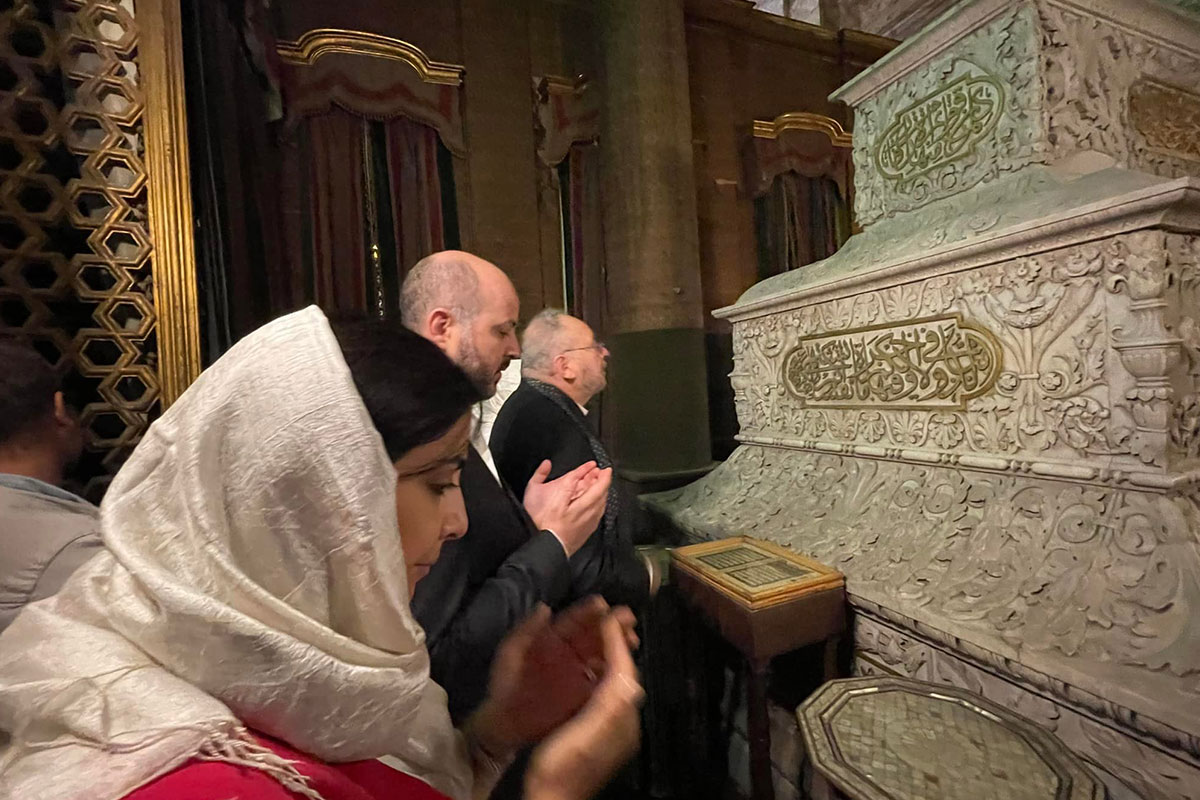
In his final years, Muhammad Ali’s health deteriorated, compounded by episodes of mental instability. By 1848, his condition had worsened to the point where his son, Ibrahim Pasha, took over the governance of Egypt in his stead. However, Ibrahim's tenure was short-lived due to his failing health, and Muhammad Ali formally relinquished power shortly before his death. He passed away on 2 August 1849 at the Ras el-Tin Palace in Alexandria, a fittingly grand residence for Egypt’s founding modernizer.
Muhammad Ali’s funeral, held in the Mosque of Muhammad Ali at Cairo’s Citadel, was a modest affair. His influence and legacy, however, were deeply felt throughout Egypt, where he was remembered as the architect of Egypt’s modern renaissance. Although his descendants continued to rule, his vision of an independent and progressive Egypt left an indelible mark on the nation.
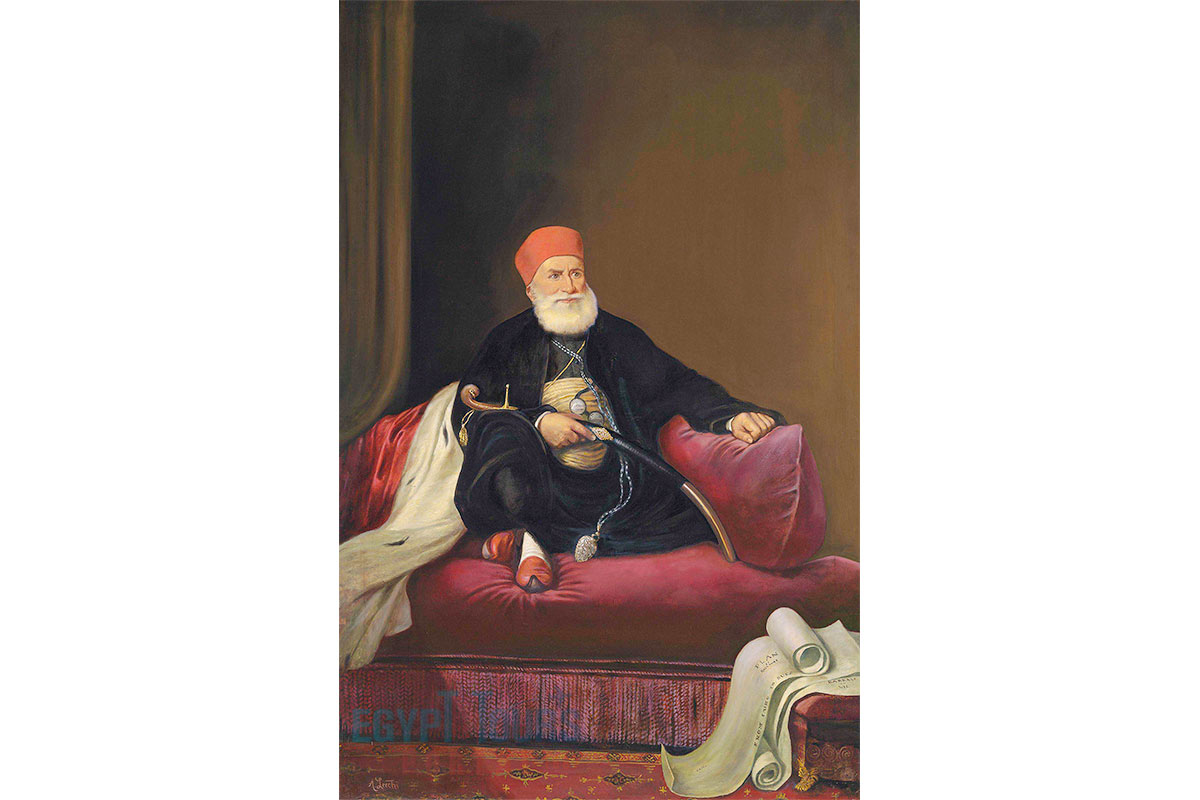
He passed the rule of Egypt to his son Ibrahim in 1848, who died shortly after, and he died in 1849. He was able to leave a great legacy, which shows in the famous Muhammad Ali mosque in Cairo. Under his rule, Egypt became a powerful nation after a series of rapid economic expansions and modernization, plus he entered the international community of nations as an independent state, not as a province of the Ottoman Empire.
He built a powerful army that depended on the scientific process, opened Egypt to European commerce and trade, and most importantly, improved education to match European standards. He transformed Egypt into industrial Egypt and created what has become known as modern Egypt.
Learn about the majestic and incredible heritage of Muhammad Ali by discovering the magical constructions of Cairo that have stood the test of time for ages. Through our Nile River cruises and Egypt vacations, you will visit amazing places in the land of the Pharaohs and will learn more about the culture of Egypt.
Private 4 Days Cairo Tour Packages for UAE Travelers 4 days Cairo Egypt Tour package...
Tour Location: Cairo – Giza...
5 Days Cairo and Alexandria Tour Package For UAE Travelers 5 days Cairo and Alexandr...
Tour Location: Cairo/Giza/Alexandria...
6 Days Cairo, Luxor & Aswan Tour Package For UAE Travelers 6 days Cairo, Luxor &...
Tour Location: Cairo/Giza/Aswan/Luxor...
Amazing 7 Days Cairo and Hurghada Holiday for UAE Travelers 7 Days Cairo & Hurgh...
Tour Location: Cairo – Giza – Hurgh...
Muhammad Ali’s relationship with the Ottoman Empire was complex. While he initially served the Ottoman Sultan, he sought autonomy for Egypt and launched several campaigns to extend his rule into the Levant and Arabia. His ambitions for Egyptian independence and power ultimately led to conflicts with the Sultan, as Muhammad Ali sought to make Egypt a hereditary and autonomous state, effectively reducing Ottoman influence.
Muhammad Ali transformed Egypt through military, economic, and social reforms. He established a professional army and navy, created state-controlled agricultural monopolies, built factories, and modernized infrastructure. Additionally, he promoted education, introduced European industrial techniques, and set up Egypt’s first printing press, shaping Egypt into a centralized, modern state that would influence the region for decades.
Muhammad Ali effectively ruled Egypt from 1805 to 1848, approximately 43 years. His governance laid the foundations for his descendants’ continued rule until 1952, when the monarchy was overthrown.
Muhammad Ali was essential in establishing Egypt as a modern nation-state and a major player in the Middle East. His reforms in the military, economy, and government laid the groundwork for Egypt’s transformation into a modern state, elevating its status and influence within the Ottoman Empire and across Europe and the Arab world.
Though Muhammad Ali governed Egypt, he spoke Albanian as his native language, reflecting his heritage, and Turkish as the administrative language of his court, as Egypt was still formally part of the Ottoman Empire. His reforms, however, included establishing Arabic-language institutions that promoted a stronger Egyptian identity.
The entire country of Egypt deserve to be explored with its every heavenly detail but there are places that must be seen before any other such as the breathtaking Hurghada's red sea, The wonders of Cairo the pyramids of Giza, the great sphinx, the Egyptian Museum, Khan El Khalili Bazaar, the wonders of Luxor like Valley of the Kings, Karnak & Hatshepsut temple and the wonders of Aswan such as Abu Simbel temples, Philea temple, Unfinished obelisk and The Wonders of Alexandria like Qaitbat Citadel, Pompey's Pillar and Alexandria Library. Read more about the best places to visit in Egypt.
If you want to apply for a Visa On Arrival that lasts for 30 days then you should be one of the eligible countries, have a valid passport with at least 6 months remaining and pay 25$ USD in cash, as for the E-Visa for 30 day you should have a valid passport for at least 8 months, complete the online application, pay the e-visa fee then print the e-visa to later be presented to the airport border guard. You could also be one of the lucky ones who can obtain a free visa for 90 days. Read more about Egypt travel visa.
Egypt has a variety of delicious cuisines but we recommend “Ful & Ta’meya (Fava Beans and Falafel)”, Mulukhiya, “Koshary”, a traditional Egyptian pasta dish, and Kebab & Kofta, the Egyptian traditional meat dish.
The best time to travel to Egypt is during the winter from September to April as the climate becomes a little tropical accompanied by a magical atmosphere of warm weather with a winter breeze. You will be notified in the week of your trip if the Climate is unsafe and if any changes have been made.
You should pack everything you could ever need in a small bag so you could move easily between your destinations.
We have been creating the finest vacations for more than 20 years around the most majestic destinations in Egypt. Our staff consists of the best operators, guides and drivers who dedicate all of their time & effort to make you have the perfect vacation. All of our tours are customized by Travel, Financial & Time consultants to fit your every possible need during your vacation. It doesn't go without saying that your safety and comfort are our main priority and all of our resources will be directed to provide the finest atmosphere until you return home.
You will feel safe in Egypt as the current atmosphere of the country is quite peaceful after the government took powerful measures like restructuring the entire tourist police to include all the important and tourist attractions in Egypt. Read more about is it safe to travel to Egypt.
Wear whatever feels right and comfortable. It is advised to wear something light and comfortable footwear like a closed-toe shoe to sustain the terrain of Egypt. Put on sun block during your time in Egypt in the summer to protect yourself from the sun.
The best activity is by far boarding a Nile Cruise between Luxor and Aswan or Vise Versa. Witness the beauty of Egypt from a hot balloon or a plane and try all the delicious Egyptian cuisines and drinks plus shopping in old Cairo. Explore the allure and wonders of the red sea in the magical city resorts of Egypt like Hurghada and many more by diving and snorkeling in the marine life or Hurghada. Behold the mesmerizing western desert by a safari trip under the heavenly Egyptian skies.
There are a lot of public holidays in Egypt too many to count either religious or nation, the most important festivals are the holy month of Ramadan which ends with Eid Al Fitr, Christmas and new years eve. Read more about festivals & publich holidays in Egypt.
Egypt is considered to be one of the most liberal Islamic countries but it has become a little bit conservative in the last couple of decades so it is advised to avoid showing your chest, shoulders or legs below the knees.
Arabic is the official language and Most Egyptians, who live in the cities, speak or understand English or at least some English words or phrases. Fewer Egyptians can speak French, Italian, Spanish, and German. Professional tour guides, who work in the tourism sector, are equipped to handle visitors who cannot speak Arabic and they will speak enough English and other languages to fulfill the needs of all our clients.
The fastest way is a car, of course, a taxi. If you are in Cairo ride a white taxi to move faster or you could board the fastest way of transportation in Egypt metro if the roads are in rush hour.
The temperature in Egypt ranges from 37c to 14 c. Summer in Egypt is somehow hot but sometimes it becomes cold at night and winter is cool and mild. The average of low temperatures vary from 9.5 °C in the wintertime to 23 °C in the summertime and the average high temperatures vary from 17 °C in the wintertime to 32 °C in the summertime. The temperature is moderate all along the coasts.
It is the home of everything a traveler might be looking for from amazing historical sites dating to more than 4000 years to enchanting city resorts & beaches. You will live the vacation you deserve as Egypt has everything you could possibly imagine.









